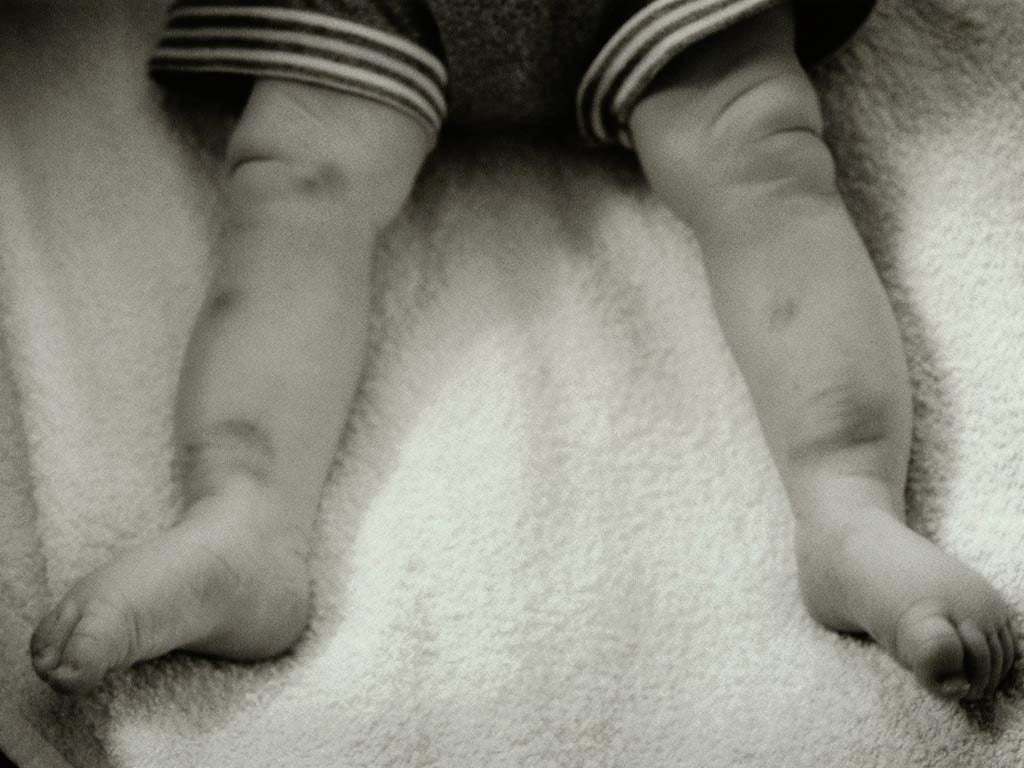From care to incarceration: The relationship between adverse childhood experience and dysfunctionality in later life
Almost the entire prison population has experienced mental health problems, homelessness, suffered abuse or violence as a child, been addicted to drugs, or grown up in care. The children we don't help end up as the adults we don't want in society, and the problem is getting worse

Figures out in June suggest that the number of children being taken into care is at its highest ever. Last month the children and family courts service received over 1100 care applications, a 25% increase on this time last year. Itself a disturbing statistic, it becomes even more so when looked at in a wider context. A government report from 2002 states that a staggering 49% of children who have been in care will end up in the prison system. They make up 23% of the total prison population.
The link between growing up in care and later being incarcerated is only one part of a larger and more complex problem. Since the 1990’s the UK prison population has almost doubled and a look at the statistics tells a distressing story. 29% of the prison population have suffered childhood abuse, 46% came from homes in which they either experienced or witnessed violence, 15% were homeless immediately prior to incarceration and 62% have drug problems. 90% of those in prison show signs of a mental health problem and 70% have two or more disorders. Almost the entire prison population has experienced mental health problems or homelessness, suffered abuse or violence as a child, been addicted to drugs, or grown up in care. Prisons have become holding pens for society’s most vulnerable members.
The Canadian physician and addiction specialist Gabor Mate claims that only a very small percentage of people who try drugs, including heroin, become addicts. What unites the people who develop addictions is an underlying emotional distress that is temporarily relieved by the addictive substance. The first question to ask when treating a drug addict, he says, ‘is not why the addiction, but why the pain.’ The same might be said of those who suffer homelessness and mental health issues. Given that almost the entire prison population has suffered one or more of these issues maybe it’s time to recognise trauma as the consistent factor that defines those serving time in UK prisons.

Last week the chief inspector of prisons Nick Hardwick said that UK prisons are in their worst state for a decade, describing some jails as ‘places of violence, squalor and idleness’.Meanwhile, under this government the picture is increasingly bleak for society’s most vulnerable children. Many will be taken into care as a direct result of the austerity cuts, and later find themselves in a dangerous, overcrowded prison system that is unfit for purpose.
Norway has the most progressive prison system in the world. Its proudest achievement is Bastoy, run by clinical psychologist, Arne Nilson. At just 16% Bastoy has the lowest reoffending rate of any prison in Europe. By comparison 46% of UK prisoners will reoffend within a year of being released. The secret, according to Nilson, is how Bastoy treats its inmates. ‘If we treat people like animals when they are in prison they will likely behave like animals. Here we treat people as human beings.’
In Norway the punishment for committing a crime is being denied your freedom, not suffering harsh and inhumane conditions once imprisoned. On Bastoy prisoners don’t live in cells but in cabins which they share with a small number of other inmates. They are given meaningful work, and taught new skills. They cook and eat together. ‘You don’t change people by power’, Nilson explains, ‘Here I give prisoners respect; this way we teach them to respect others.’

Norway is a liberal and progressive society. The conditions in Bastoy would no doubt cause moral outrage were they adopted here. An oft repeated criticism is that Bastoy is more like a holiday camp than a prison. The truth is that it works. Inmates in Bastoy are treated with dignity and respect, and they respond accordingly.
The argument repeated by those who resist reform in the prison system is that it is only longer sentences served in harsher environments will provide a sufficient deterrent to reoffending. But the evidence doesn’t stack up. The US, which has the most punitive prison system in the developed world, also has the highest rates of recidivism. Almost 60% of those released end up back in the system.
They will go on to argue that not everyone who grows up in care, or suffers trauma in childhood, goes on to commit crime. They are right, of course. They will say this proves that trauma is not the cause of criminal behaviour, and that it is instead a matter of choice and personal responsibility. It’s a lazy argument with flawed reasoning. Just because not everyone who has suffered trauma ends up in prison, doesn’t mean that everyone in prison hasn’t suffered trauma. It’s like suggesting that because not everyone who smokes gets lung cancer, smoking cannot be the cause of lung cancer.
If we are serious about reducing crime, preventing reoffending, and decreasing the prison population, we need to understand the relationship between adverse childhood experience and dysfunctionality in later life. Ultimately this means acknowledging our own failure to protect vulnerable children, and taking responsibility for the suffering they have experienced. It means taking a long look at our shortcomings as a society, and attempting to rectify them. More than anything it means finding it in ourselves to offer compassion to those who need it.
When you read the shocking statistics about the increase in children being taken into care, take a moment to remember how many of them will end up in prison, and ask yourself whether we gave them a fair chance.